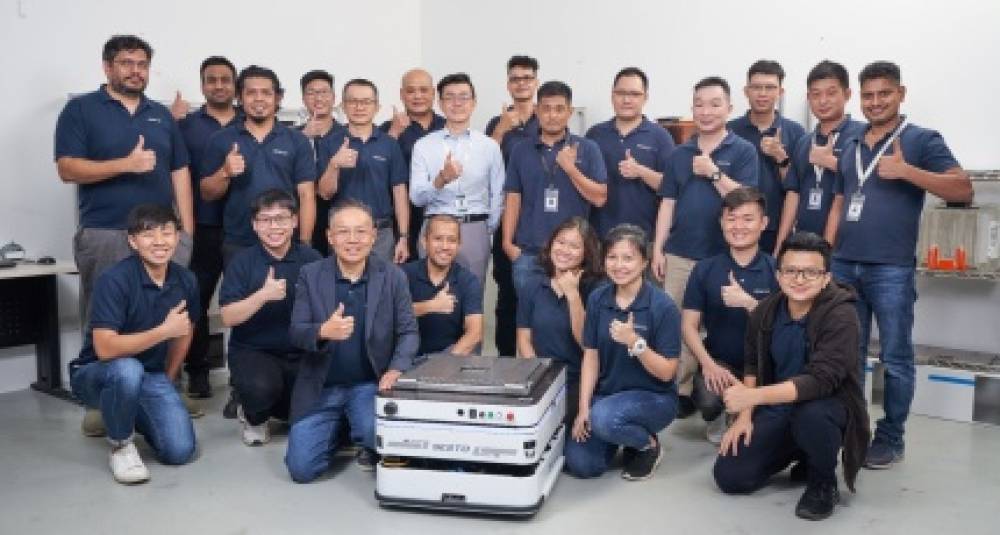
Tado, A German Smart Home Energy Startup, Plans To Go Public Through A SPAC At A Valuation Of €450 Million
Tado, a German smart home energy startup, plans to go public through a SPAC at a valuation of €450 million
It was announced today that Tado, the German smart home startup that began with thermostats and has since expanded into flexible "time of use" energy tariffs powered by loadshifting technology, has entered the next phase of its operations. It is going public through the use of a SPAC transaction.
GFJ ESG Acquisition, a German SPAC with a focus on sustainable technologies, has announced that it will merge with tado and list the resulting company on the Frankfurt Stock Exchange in the coming months. In the current phase of negotiations, GFJ and Tado are expected to reach an agreement on the PIPE transaction, which once completed will be worth €450 million ($514 million at current exchange rates). It is expected that the new company will continue to operate under the name tado.
Neither the amount of money that Tado intends to raise through the listing nor the date on which it expects to do so have been disclosed, according to a spokesperson for the company.
The move comes as a result of two important developments for tado. AWATTar was acquired by tado last week in order to expand from energy consumption hardware inside the home to software that helps customers better manage their energy consumption and costs based on how they use energy and how pricing varies depending on the fluctuation of the energy source's price (which can include renewable sources like solar and wind, as well as more traditional channels).
Determining to Go Public
In addition, tado raised $46 million in the month of May. According to the company's previous statements, this would be its final round of financing before going public, and that is exactly what is taking place at this time. The company raised a total of just under $159 million from a diverse group of investors that included Amazon, Siemens, and Telefonica, among others. PitchBook data indicates that its valuation in those private rounds was approximately $255 million, which was significantly lower than the €450 million it expects to achieve with its market capitalization upon listing.
The transaction is significant because it will mark the first time in Europe that a large green technology startup will go public on the stock market. In the long run, Tado wants to develop services that assist in the management of energy consumption across an end-to-end system, starting with the power grid and ending with consumers in their own homes. As of right now, that company is moving in two distinct directions. Beginning as a manufacturer of smart thermostats, the company has grown to sell more than 2 million units since its founding in 2010. The company then expanded into energy tariffs and usage management, catapulting it into a larger business based on big data and predictive analytics, as well as harnessing the vast and highly fragmented markets for renewable energy and energy hardware systems, among other things.
In its most recent earnings call, the company announced that it has sold more than 2 million smart thermostats and that its energy management technology has connected approximately 400,000 buildings and households in 20 countries, managing more than 7 gigatonnes of energy capacity. According to the company, it works with approximately 18,000 systems manufactured by 900 original equipment manufacturers (OEMs) and claims that customers who use its load-balancing technology save an average of 22 percent on annual heating costs.
As climate change concerns grow in importance, and as services that enable consumers to make climate-friendly choices become more widely available and affordable, a new window of opportunity has opened for green and clean technology companies. This listing demonstrates how one of them has gained enough confidence in that traction to take the risk of going public in order to continue growing.
A statement from Toon Bouten, the CEO of tado, said, "The entire tado team is thrilled to be partnering with GFJ." "We hold the same beliefs and are equally enthusiastic about green technologies." In addition, we are committed to assisting our customers in saving money while also reducing their environmental impact. Our collective efforts to develop more environmentally friendly energy sources will put us in a strong position to succeed."
Moving forward
The transaction is expected to close in the coming months, with Bouten stepping down as CEO and being replaced by Oliver Kaltner (who currently serves as President of office solutions provider Room), Christian Deilmann serving as CPO, and Johannes Schwarz serving as CTO. Executive Vice President and Chief Financial Officer Emanuel Eibach will remain in his position. Gisbert Rühl will take over as chairman of the supervisory board from his predecessor, Klaus Schwab. Josef Brunner, Petr Mkovec, Toon Bouten, and Maximilian Mayer will also serve on the supervisory board, in addition to the other members.
"GFJ and tado are committed to increasing the pressure on climate change in an ethical and responsible manner," says the statement. The company tado is already a market leader in the spirit of a new wave of green technology companies," said Gisbert Rühl, CEO of the GFJ. Our excitement at bringing capital and expertise into the company to help them grow even stronger and advance the development of their technology is palpable. The heating and cooling of private residences accounts for approximately a quarter of total energy consumption in the EU. "Decarbonizing the housing sector is essential if the EU and Germany are to meet their commitment to become the world's first climate-neutral economies by 2050."
In becoming a publicly traded company, tado will be able to provide greater market transparency, which will benefit the entire green technology industry in general. For the time being, the company expects to generate over €500 million in annual revenue in three years, by 2025, and to be profitable.

